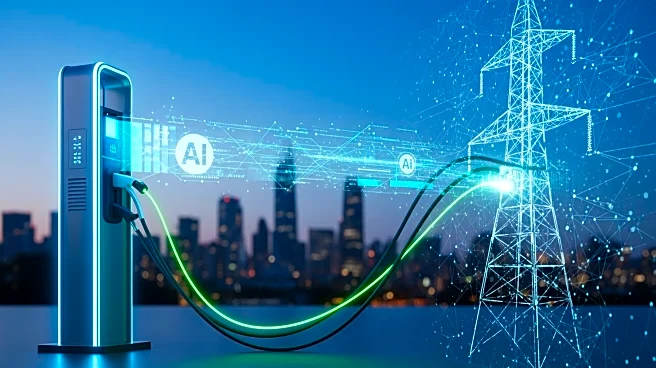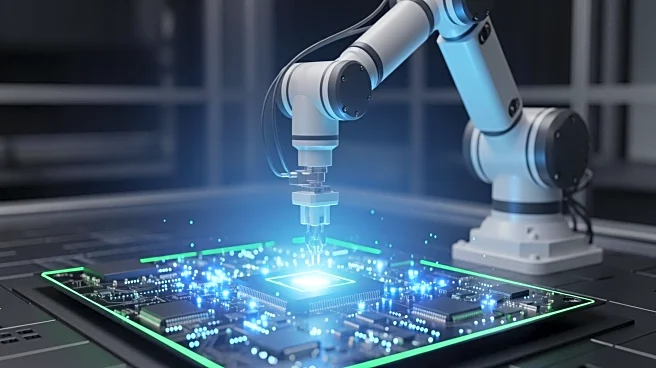What's Happening?
India is experiencing a rapid growth in electric vehicle (EV) production, with projections indicating a surge from 130,000 units in 2024 to 377,000 in 2025. This growth strains the nation's power grid, necessitating the integration of Artificial Intelligence
(AI) to optimize charging efficiency and regulate demand. AI is being used to forecast EV charging demand, optimize power distribution, and integrate renewable energy sources. The Indian EV charging market is expected to grow significantly, with AI playing a crucial role in ensuring grid stability and supporting a sustainable EV ecosystem.
Why It's Important?
AI's role in managing EV charging is critical for maintaining grid stability and reducing energy costs. By optimizing charge schedules and load management, AI helps prevent grid overloads and ensures a stable power supply. This technology also facilitates better integration of renewable energy sources, aligning with India's target of 500 GW of non-fossil capacity by 2030. The use of AI in EV charging represents a significant step towards achieving India's ambitious goals for reducing dependence on fossil fuels and promoting sustainable energy solutions.
What's Next?
The future of AI in EV charging involves overcoming challenges such as limited smart grid infrastructure, data privacy concerns, and high initial costs. Policy support and government incentives will be crucial in encouraging the deployment of AI-driven charging infrastructure, particularly in semi-urban and rural areas. Emerging technologies like reinforcement learning and edge AI are expected to enhance grid management and decision-making processes, paving the way for a smarter, greener future by 2030.















